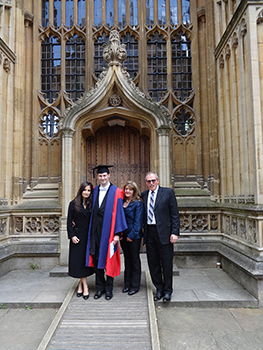Latest News Archive
Please select Category, Year, and then Month to display items
24 July 2024
|
Story Lacea Loader
![]()
The University of the Free State (UFS) is co-hosting the Global Social Innovation Indaba together with Social Innovation Exchange (SIX) on its Bloemfontein Campus from 30 September to 2 October 2024. This event brings together people from different sectors all over the world to discuss how to accelerate and support people-powered
change and create a better society for generations to come.
The UFS is excited to collaborate with SIX, as its vision and values overlap. During this three-day indaba, aspects such as – what it takes to build accountable, inclusive, and participatory institutions, specifically the future role of universities in South Africa – will be discussed. Themes to be explored include young people as drivers of change, post-industrial transitions and community resilience, the role of art, social change and bridging divides, and systemic approaches to dealing with unemployment.
Some of the speakers and participants in the programme include Carla Duprat from ICE (Brazil); Cheryl Jacob from ESquared Investments (South Africa); François Bonnici from the Schwab Foundation for Social Entrepreneurship (Switzerland); Sir Geoff Mulgan from the University College London (UCL) in the United Kingdom; and Dr Narissa Ramdhani from the Ifa Lethu Foundation (South Africa).
The UFS will also use the opportunity to showcase its campus and offerings to attendees, focusing on its transformation story and some of the interdisciplinary forward-thinking programmes. Guests will also be treated to true South African hospitality, laying the foundation for strong relationships and collaboration.
SIX believes in the transformative power of people working together. Exchanges based on mutual value and reciprocity are the missing link in tackling the world’s problems. As a friendly, expert entry point to global social innovation, their work connects organisations, sectors, communities, and nations to build capabilities and create opportunities for collaboration.
UFS alumnus receives PhD in Statistics from the University of Oxford
2016-06-03

In May of this year, DW Bester obtained
a DPhil in Statistics at the University of
Oxford.
Photo: Supplied
On 14 May this year, Dr DW Bester received a DPhil in Statistics from the University of Oxford. The entire ceremony, which was held in the Sheldonian Theatre in Oxford, was conducted in Latin, as has been the case for the past 800 years.
Dr Bester completed his undergraduate studies and his honours degree at the University of the Free State (UFS). “At first, I was only planning to study for a master’s degree, but was privileged to get an opportunity to do a PhD as well. I didn’t think twice!” he says.
Studies at the University of Oxford
Universities in England do not require a master’s degree for PhD studies. With the help of Prof Max Finkelstein from the UFS Department of Mathematical Statistics and Actuarial Science, Dr Bester registered for the DPhil programme in Statistics directly after his honours studies.
“The title of my thesis was: Joint survival models: A Bayesian investigation of longitudinal volatility. It dealt with a problem in the medical field to determine the cause of stroke risk: is it the absolute level of blood pressure, or the volatility thereof? The analysis of this question led to interesting models which needed advanced application techniques. I had to study these techniques and write programmes for their application.
Although Dr Bester is working currently as the technical head of a company that calculates insurance for power stations, satellites, rockets, and cyber risks, he would like to continue working with his Oxford supervisor in future to make the techniques they have developed more accessible for researchers outside of the field of statistics.
“Studying at Oxford requires hard work, perseverance, and a lot of luck. Luck plays a big role, since there are no guarantees that hard work will ensure you a spot in one of the top universities.
Regarding his studies at Oxford, Dr Bester thinks back on his exposure to the GNU/Linux operating system, and free software. “I have seen how valuable this is for analyses in practice. I also had the privilege of meeting the father of free software, Richard Stallman,” Dr Bester says.
2011 Rhodes Scholar
He was elected as Rhodes Scholar in 2011. According to Dr Bester, who has been interested in Mathematics since high school, the Rhodes scholarship was something of a fluke. He applied for the Rhodes scholarship on the recommendation of Prof Robert Schall of the Department of Mathematical Statistics and Actuarial Science.
Role of the UFS in his successes
In addition to the continued support from the team of passionate professors and lecturers at the UFS, the actuarial degree at the UFS is fraught with statistics. Emphasis is also placed on Bayesian statistics. This was crucial to his studies at Oxford. According to Dr Bester, this topic is emphasised strongly in the international statistics community.
Dr Bester regards the work done by two of his lecturers, Michael von Maltitz and Sean van der Merwe, among his highlights at the UFS. Since our first year, they have created an atmosphere of camaraderie among the students. “I think this contributed to the success of everybody. They also make an effort to present topics outside of the syllabus regularly,” says Bester.